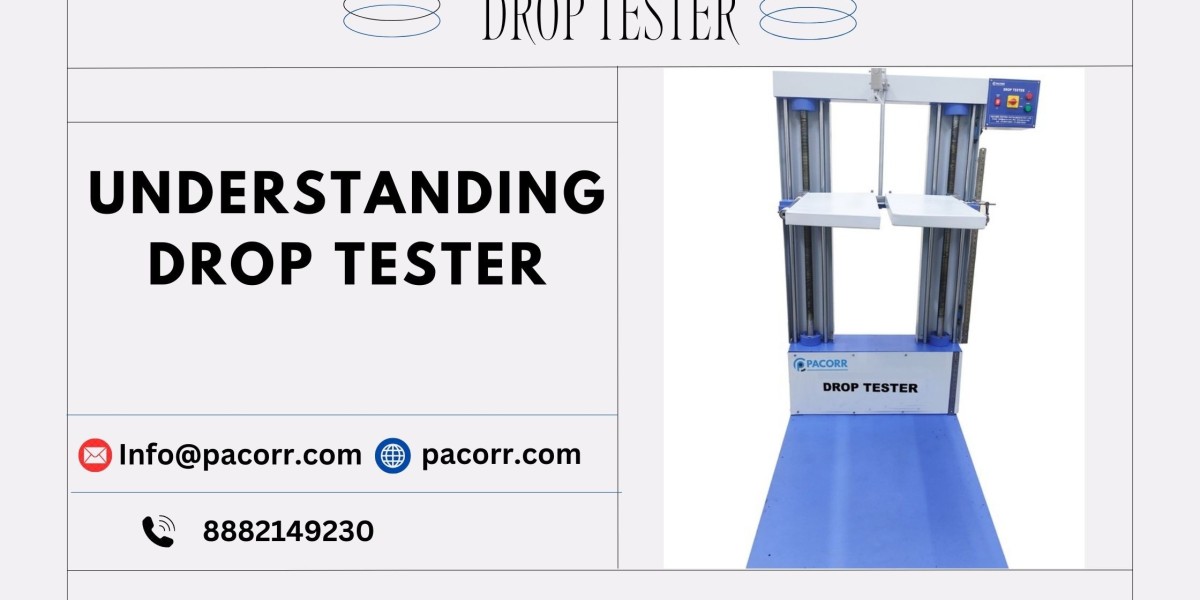Enter the Drop Tester a specialized machine designed to evaluate a product's durability by simulating real-world drops and impacts. In this article, we’ll dive into what drop testing is, how drop testers work, and the value they add across various industries.
What is Drop Testing?
Drop testing is a method used to assess a product's ability to endure drops and impacts. By using a drop tester, manufacturers can simulate the kinds of accidental falls a product might experience during shipping, storage, or consumer use. This testing is essential for identifying weak points in product design, enhancing product reliability, and ensuring items meet industry durability standards.
How Does a Drop Tester Work?
A drop tester is engineered to drop a product from specific heights and angles onto impact surfaces, mimicking common scenarios that could damage it. With programmable controls, these machines allow for adjustments in height, angle, and surface type, making it possible to simulate a wide range of potential conditions. Some advanced drop testers even measure and record impact forces, providing data that helps manufacturers evaluate results more precisely.
Testing can involve a single Drop Tester Price or multiple drops from various angles and heights, depending on the product and industry standards. This flexibility allows for customized testing that can mimic real-world handling conditions, providing valuable insights into product durability.
The Advantages of Drop Testing for Product Quality
- Improved Product Quality: By identifying potential weak points before a product goes to market, manufacturers can enhance product design and durability. This not only reduces the chance of product failure but also improves the overall quality and reliability of the final product.
- Cost Savings: Discovering potential durability issues early in the production cycle helps businesses avoid expensive recalls and repairs. Drop testing helps mitigate risks, saving time and resources in the long run.
- Compliance with Industry Standards: Many sectors have strict guidelines for product durability. Drop testing ensures products meet these standards, helping companies comply with regulatory requirements.
- Increased Customer Satisfaction: Consumers expect durable products, and drop testing helps companies meet this expectation. By offering robust and resilient products, companies can build trust with their customers and foster brand loyalty.
Industries that Benefit from Drop Testing
Drop Test Equipment is valuable for many industries. Here are some prominent examples:
- Consumer Electronics: Items like smartphones, tablets, and laptops are vulnerable to drops. Drop testing ensures these products can withstand typical impacts, reducing the risk of damage from everyday accidents.
- Packaging: Packaging materials must protect products during shipping and handling. Drop testers help packaging companies confirm that boxes, containers, and other materials are up to the task.
- Medical Devices: Medical equipment needs to be both durable and reliable. Drop testing ensures that essential medical devices can handle daily use and transportation without compromising their integrity.
- Household Appliances: From coffee makers to blenders, household appliances undergo drop testing to ensure they are durable enough to handle regular use and minor impacts.
- Automotive Components: Automotive parts must be sturdy enough to survive transportation and installation. Drop testing helps ensure the durability of critical vehicle components.
Choosing the Right Drop Tester
Selecting a Drop Tester Manufacturer depends on a product’s size, weight, and testing needs. Here are some factors to consider:
- Product Specifications: Ensure the drop tester can handle your product’s weight and dimensions.
- Testing Flexibility: Some products require more complex testing, such as rotational drops or drops from different angles. Advanced drop testers with customizable settings offer more flexibility for such scenarios.
- Data Collection: Many drop testers can record impact forces and other data points, making it easier to analyze test results and improve product design.
Conclusion
Drop testing is an essential part of quality assurance for any business focused on durability and reliability. A Drop Tester Machine allows manufacturers to rigorously assess their products’ resilience to real-world conditions, reducing potential risks, saving costs, and enhancing customer satisfaction. From consumer electronics to automotive parts, this testing is a crucial step in creating products that meet high standards and satisfy customers.
Contact Us:
- Email: Info@pacorr.com
- Phone: 8882149230
- Visit our website at www.pacorr.com for more details on our testing instruments.







